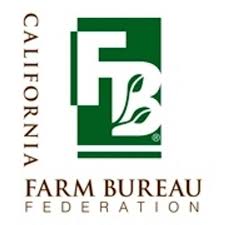September 7, 2020 - By Kevin Hecteman and Ching Lee - Fast-moving wildfires have left varying impacts on farms and ranches throughout Northern California, with some places destroyed and others narrowly  averting disaster.
averting disaster.
In Solano County, the LNU Lightning Complex fire devastated the Pleasants Valley area near Vacaville.
Sarah Hawkins said she and her husband, Andy Pestana, were awakened by a middle-of-the-night phone call from a neighbor, alerting them to a fast-approaching fire.
"It was 98 degrees at 1 in the morning when we went outside," Hawkins said. "The firefighters in the area have told us that the winds were at 50 miles an hour. The fire came at us from the west, and then suddenly rushed out of the north. It was just a wall of flames."
Hawkins and Pestana had little time to do anything but dress, grab their dog and get out.
The toll was devastating. Half her farm's herd of Nigerian dwarf goats perished in the flames, along with all her chickens. The couple also lost their house, their barn and $10,000 worth of hay, along with beekeeping equipment and a greenhouse used to propagate native plants.
Losing the goats hit Hawkins especially hard. Nigerian dwarf goats stand about 22 inches tall at the shoulder and are the smallest dairy goats. The surviving members of the herd are sheltered at a neighbor's farm while Hawkins contemplates her future.
"Seventeen years of very hard work on that property burned to the ground in a matter of hours," she said. "I don't know that we can go back there. The options are, go back and rebuild, or find a different place where we can go with our animals, or just move on."
Alexis Koefoed of Soul Food Farms in Vacaville had already shut down most of the farm's agritourism business due to COVID-19. She had recently begun to allow photographers to use the farm for photo shoots—when the LNU Fire derailed those plans.
She estimated she lost 80% of her farm, including all pastureland, fruit trees, sheds and cattle fencing, though her cows, chickens and sheep "miraculously survived."
Trying to save what's left, including an olive orchard, has been difficult, she said, because her irrigation system and sheds that held everything she used to run the farm have been destroyed. She did not have power or water during the first five days after the fire, but noted her husband Eric had since hooked up a generator to access well water, which she's been using to keep her olive trees and lavender field alive.
"The rest of it, I can't do anything about," Koefoed said, "so I just have to hope everything holds on until we get the irrigation system rebuilt."
Though she has insurance for the farm, she said that doesn't cover losses fully, meaning she will need to look to other financial resources.
"It's not just the money to replace what you've lost," Koefoed said. "It's all the money you need to clean up. It's all the money you need to haul all these destroyed things away. It's the money to pay for labor to rebuild."
Other small farms in the region do not have any crop insurance at all. For example, Kendall Richard of Pleasants Valley Iris Farm in Vacaville, on the farm's GoFundMe page, said the flower farm is not insured and that it was destroyed by the LNU Fire.
Evan Wiig of Community Alliance for Family Farmers said "the vast majority" of small farms do not have crop insurance, which he said "just doesn't pencil out" for many small-scale operations.
Wiig encouraged farmers—particularly those who haven't been hit by fire—to start tracking and documenting assets now.
In Glenn County, rancher Ritta Martin had to contend with the August Complex. Her ranch borders the Mendocino National Forest.
"The fire burned incredibly fast in the forest above our property, in the Grindstone Canyon area, ripping through trees and brush that haven't been burned in 45-plus years," said Martin, who is first vice president of the Glenn County Farm Bureau. "Downslope west winds fueled the fire as we fought it with our own heavy equipment—dozer, road grader and water trucks."
These efforts helped stop the fire's spread half a mile from her property. Neighbors helped each other build fire breaks, hose down buildings and move livestock to safety, she added.
"I am beyond humbled by the dozens and dozens of phone calls and text messages from friends willing to come at a moment's notice to help us," Martin said.
Martin said her area was fortunate in that there was little to no loss of homes or livestock. The biggest impact, she said, is loss of feed and fencing.
"The majority of the cattle in this area are currently on summer irrigated pasture in southern Oregon or far Northern California," Martin said. "The cattle normally return in November to graze the dry feed until rains bring new green feed. Now, that feed is gone in many places, and folks will either need to buy additional hay, find other pasture or sell out."
In Nevada County, the Jones Fire threatened rancher Linda Miller's property. Her brother brought up his water truck and water wagon, and she contemplated moving his cattle to her irrigated pasture while watching air drops near the property. Fortunately, her operation was spared.
"We just tried to remain vigilant and be here," she said. "It's going to be a long fire season."
The U.S. Department of Agriculture offers a number of programs for crop and livestock producers devastated by fire and other natural disasters, through the Farm Service Agency. For more information, see www.fsa.usda.gov/programs-and-services/disaster-assistance-program/index.
The California Farm Bureau Federation has established a Farm and Rural Disaster Fund through its affiliated California Bountiful Foundation. For more information, and to donate, go to california- bountiful-foundation.square.site.
(Kevin Hecteman and Ching Lee are assistant editors of Ag Alert. They may be contacted at khecteman@cfbf.com or clee@cfbf.com.)
Source: CA. Farm Bureau Federation









